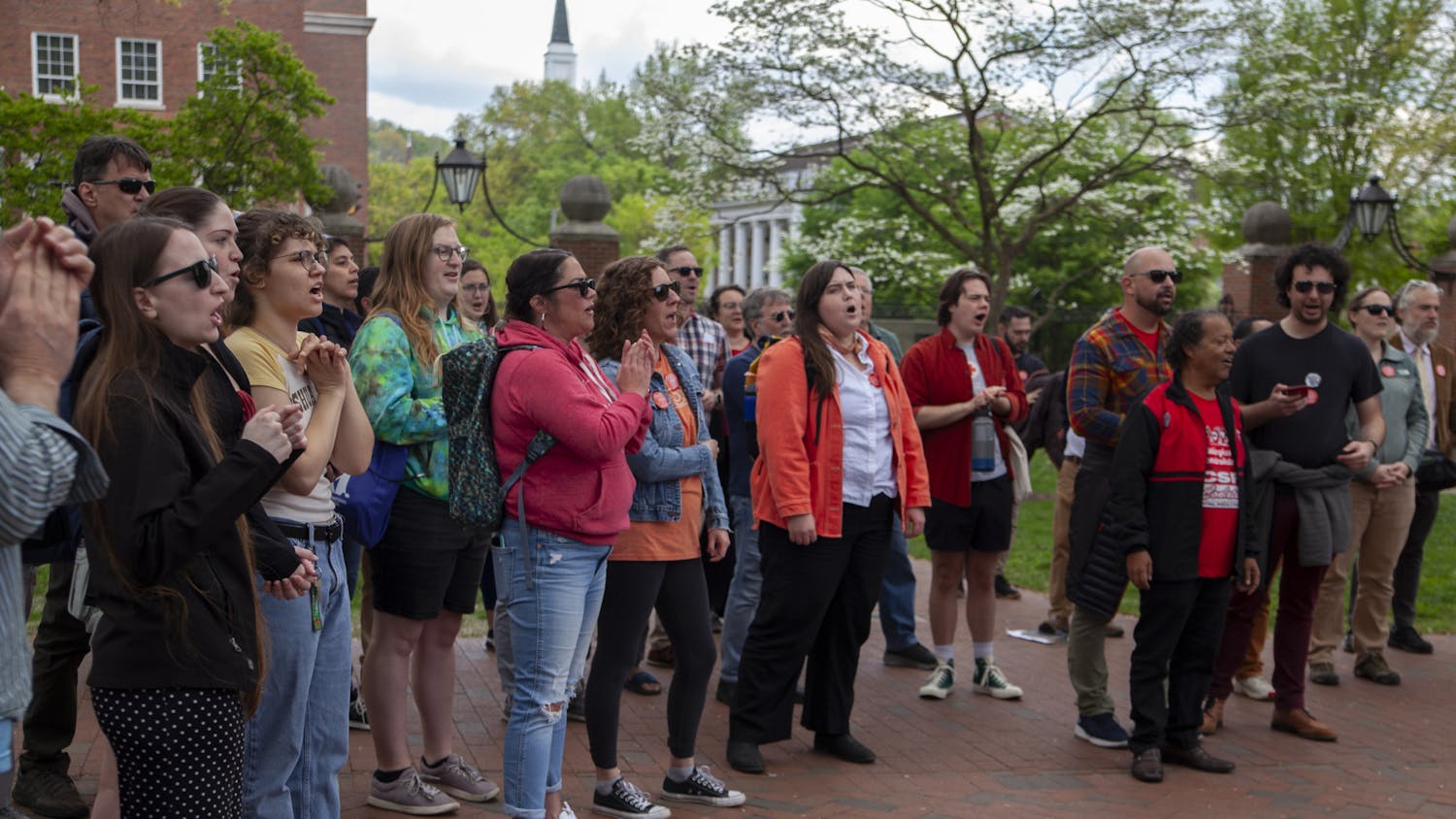For Erin Finck, yoga isn’t just an exercise routine –– it’s a way of life.
Finck, who works as a yoga instructor, started doing yoga as a teen as a way to recover from a back injury and ease her anxiety and depression. Now, she teaches yoga classes –– one specifically for pregnant women.
Finck’s been teaching prenatal yoga for about a year now through the Bodhi Tree Guesthouse & Studio. Before Finck, Liz Chamberlain, studio owner of Bodhi Tree, taught prenatal yoga. For Chamberlain, prenatal is a slow-paced routine that helps keep people mobile, strong and relaxed during pregnancy.
“It can also help prepare for the birth experience, and simply help practitioners find reclined positions that are comfortable and conducive to sleep and/or relaxation as the pregnancy progresses,” Chamberlain said in an email. “When I teach prenatal yoga, I try to stay focused on creating a welcoming, non-judgmental/non-coercive environment, and try to offer space for practitioners to trust their own experience as I invite them to try certain movements or set up for supported postures.”
Given the ongoing COVID-19 pandemic, Finck teaches her classes virtually through Zoom. Generally the prenatal classes consist of some movement and breathing techniques, some kegel exercises for the pelvic floors and some restorative postures, Chamberlain said in an email.
A lot of the class is focused on working with the body’s structural changes during pregnancy, Finck said.
“Women’s lower backs get more of a swayback, where their bellies make a C-shape,” she said. “We try to undo that, as it can cause a little bit of back pain.”
Women also tend to round their shoulders since their whole center of gravity shifts, Finck explained. The class utilizes poses to undo that shift, too.
The class also works on prenatal mother-and-child bonding.
“I like to do a bit of a loving meditation to help mama bond with baby and send baby loving thoughts,” Finck said. “It’s a really special time.”
Prenatal yoga can also help prepare for the birth experience, Chamberlain said in an email. “(It) can simply help practitioners find reclined positions that are comfortable and conducive to sleep and/or relaxation as the pregnancy progresses.”
Though pregnancy puts women at high-risk for many activities, every body –– literally each individual’s body –– is capable of doing yoga, Finck said. Both Finck and Chamberlain clarified that the class doesn’t do intense movements; it might be too slow for some people, Finck said.
“In class, we definitely avoid any deep stretches, deep twists or postures that require lying flat on the back,” Chamberlain said in an email.
Finck said that people should check in with their doctors first before doing any type of yoga. “I err on the side of caution,” she said. “If you are experiencing some type of injury, let the instructor know.”
Annie Engel, a senior studying psychology, got into yoga her senior year of high school. Though she doesn’t participate in prenatal yoga, she uses yoga as a way to better her mental health like Finck.
“The greatest thing that I learned was to let the world pan out how it’s supposed to,” Engel said in a Facebook message. “I learned how to be mindful and stop being anxious over controlling every aspect.”
Engel happened to learn about yoga virtually, too, through YouTube channel Yoga with Adriene. For her, this was a great place to start. She recommends Yoga with Adriene to those who are interested in yoga, but to go in with no expectations.
“Yoga is more beneficial to think about as a discipline,” Engel said in a message. “All you have to do is get on the mat and listen to your body, you don’t have to be a pro.”
Prenatal yoga through Bodhi Tree is offered Mondays on Zoom, 5:30-6:30 p.m. Finck asks that you register at least half an hour before the session.






